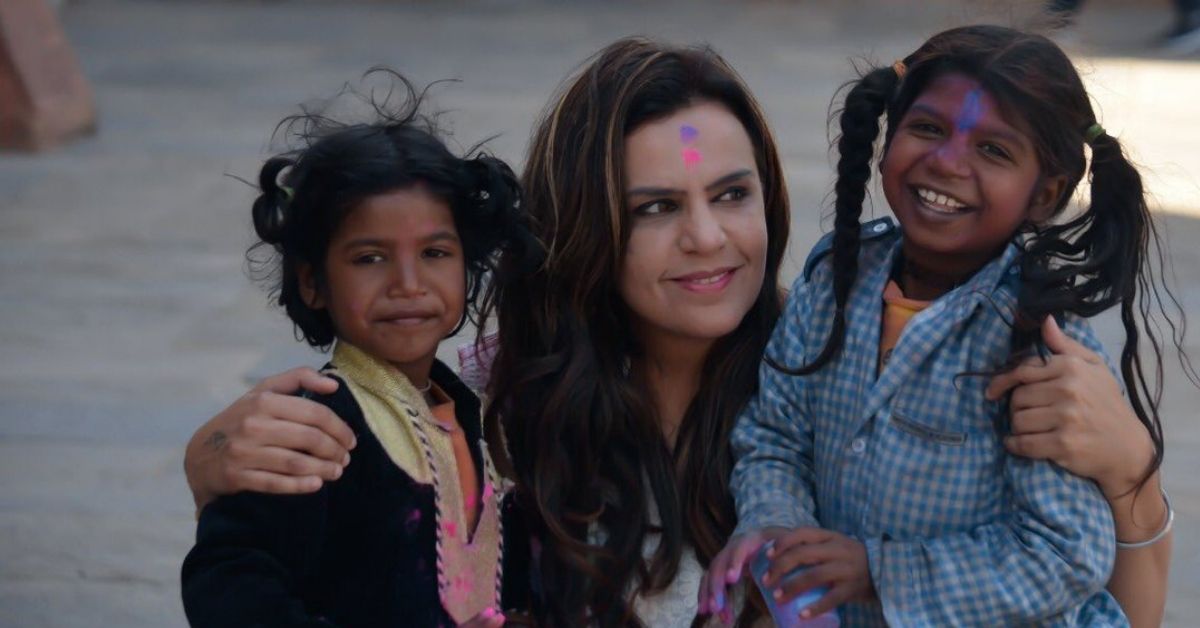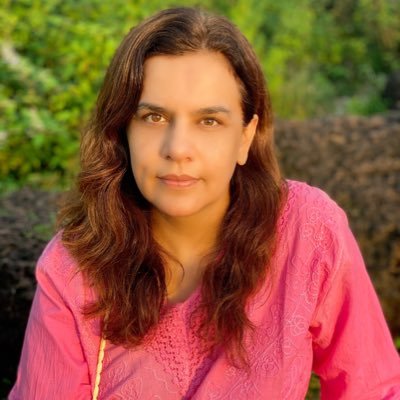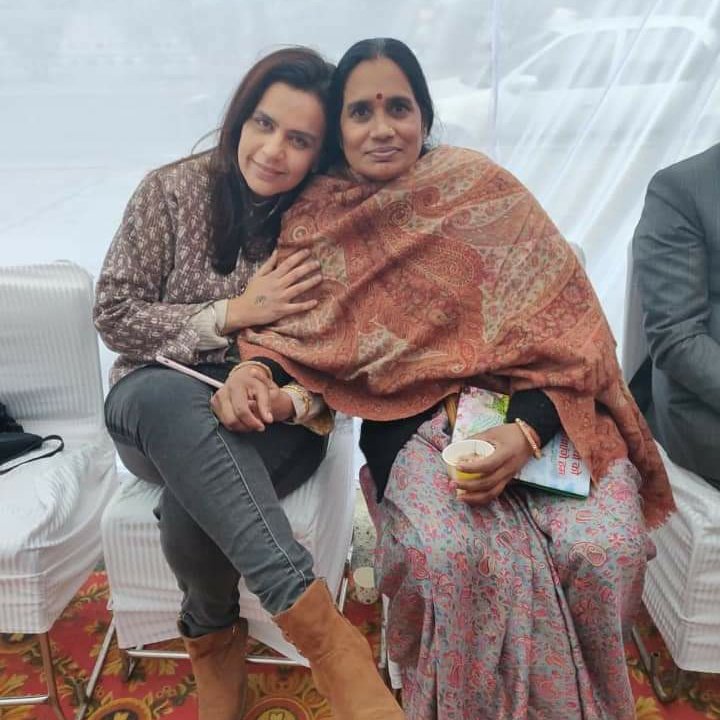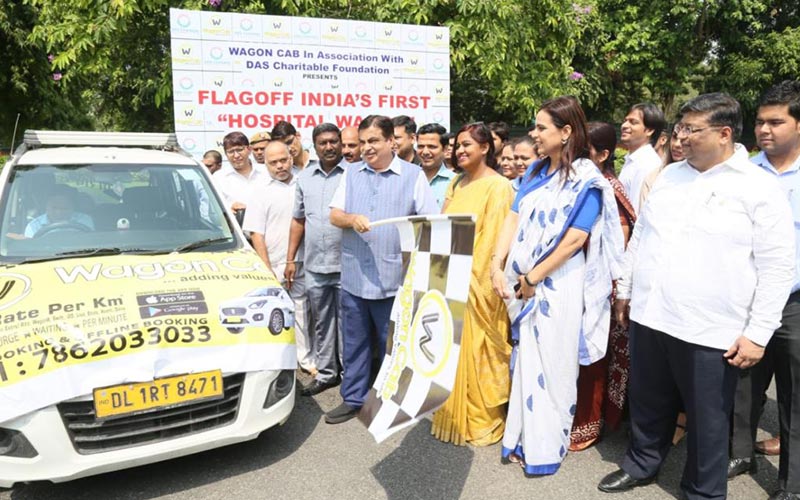She Quit Her Thriving Career In Aviation To Help Hundreds Of Rape Victims Get Justice
Yogita Bhayana once had a glamorous career in aviation, but eventually quit her job to take up activism. After Nirbhaya’s case, she started PARI, an organisation that works to rehabilitate rape victims and get them the justice they need.

In the 14 years since she has taken up social work and activism, Yogita Bhayana, a well-known name in the field of women rights, has seen many incidents that have left her appalled at the state of affairs in India. Rape, brutality and injustice are rife in the nation, and Yogita has spent years watching closely how this leaves the most vulnerable section of society struggling.
But before she arrived at this point in her life, she was just a young girl from Delhi pursuing a glamorous career in aviation.

Born and raised in the capital city, Yogita’s life was that of a Delhi girl, who completed her education from Delhi University and got a Master’s degree in Disaster Management from Guru Gobind Singh University. But even in school, her inclination towards doing good for weaker segments of society was ever-present.
“When I was in Class 9 and 10, I used to teach children under a tree outside my house,” she recalls in conversation with The Better India. “I also used to raise funds for senior citizens in school. So my involvement in social activities goes way back.”
‘Justice is a slow process’
As she grew older, she found a lucrative career with Kingfisher Airlines. But in 2002, when she was all but 22 years old, she had her first brush with the broken reform and justice system that continues to plague the country.
“I witnessed a horrible road accident where the perpetrator ran away, and no one came forward to help the victim. I took him to the hospital and called his family. By the time he received treatment, it was already too late. Even at the site of the accident, it was only my friend and I who came forward to help him. The government hospital was not equipped to help him either, and took hours before the treatment began. He died, leaving behind a wife and a bunch of children, aged between one and five years,” she says.
“I was just a young girl with no prior exposure to something like this. I couldn’t sleep for nights after the incident. I was left wondering, ‘What is the life of a poor man in this country?’ That was a big awakening for me. I tried to organise awareness programmes, but pushing the government to make a change is a very slow process,” she explains.
Yogita stood by the family of the accident victim — she stood as a witness in court, got his wife and children compensation, and provided them overall support. This, she says, gave her insight into how complicated the issue of justice really is. “It’s not just one issue — several problems intertwine and you tend to get carried away and confused about where to even begin.”
Meaning of “me too” in conversation with Grass root level working women.Workshop on sexual harassment at workplace and SOPs pic.twitter.com/cJpldUsJJK
— Yogita Bhayana योगिता भयाना (@yogitabhayana) October 31, 2018
After a slow and gradual transition, Yogita quit her glamorous job in the aviation industry to take up social work full time. This, she says, was her calling. “Quitting my job was the happiest moment of my life. I could have started much earlier, but I take my time in aviation as a learning experience as well,” she notes.
In 2007, she formed the Das Charitable Foundation to help victims of road accidents, spread awareness about the need for hospital reform, try to bring them justice, and more. Alongside, she was conducting employment generation programmes for women. The NGO does not take government aid and relies on networking and corporations for funding. Yogita notes that over the years, she has become more involved with activism than running the NGO.
She worked with Das till 2011, but the next year, as news of the horrific gangrape of a 23-year-old medical student in Delhi swept the nation, Yogita began her vociferous activism.
Nine years later, the internet has plenty of images to show how she stood by Nirbhaya’s parents, spent months at the protests, and spoke up against the need for urgent justice. Regardless, it took nine years to deliver justice, she notes.

She adds, “When I took up Nirbhaya’s case, I had about eight or nine more cases of rape and brutality. I was spending all my days in court, going from one hearing to another. Nirbhaya’s mother had the world’s attention and aid, but there were many others that people were not even looking at. Standing up for them was the realest blessing for me, and I noticed how much they need someone to offer them that support at all times. You can’t promise them justice, but you can promise that you’ll be there with them.”
After Nirbhaya’s case came to light, Yogita started People Against Rape in India (PARI), an organisaton that aims to provide rehabilitation, justice and safety to victims of rape and their families.
Not above, not below
“When we were protesting at Jantar Mantar, we received many calls from other victims and their families. I had met a few people at the protest and after Nirbhaya passed away, we decided to stay back, receive these SOS calls and work to help them. One time, I went to the hospital to meet a victim, a little girl who was around four or five years old. At the hospital, I ended up meeting several such babies. This was an eye-opener — we don’t even know how many such girls are languishing in hospitals, or are probably dead,” she says.
Yogita began conducting research, filing RTIs, and conducting ground work for rape victims — medical aid, police intervention, legal process and more.

PARI runs a number of key programmes such as We Men, which works to involve men in the cause of women safety, gender sensitisation and more. Meanwhile, Project Ummeed deals with promoting safe driving and adherence to traffic rules by Blue line bus drivers by working for the overall mental well-being of drivers through counselling sessions and workshops.
Project Utthhan works for poverty elimination, with their target audience specifically being widows, single women and other vulnerable groups. Through skill development programmes, PARI trained and placed over 1,000 women from economically weaker sections of society as cab drivers, housekeeping staff and car cleaners.
Alongside, the organisation works with hundreds of rape victims, survivors and their families to help them with legal aid, compensation, rehabilitation and justice. They also conduct preventive work via sensitisation workshops, awareness campaigns and more.
“It’s important to help the survivor, but it’s equally imperative to work on prevention. If you don’t, these cases will continue till the end of time,” Yogita says, adding that they receive at least 10-15 calls a day from aggrieved personnel.
Having spent years working closely with rape victims, she has become privvy to a number of issues, she says. “We’re failing at two levels here,” she explains. “Firstly, at the policy level — many laws and reforms exist to benefit women and victims, but what’s lacking is effective implementation. Then there’s a problem at the society level — how do we see our women? We see them as either goddesses, or as whores. The projection of women has to be as an equal, not above and not below.”
आज की शाम @pariforindia के युवा #Volunteers के साथ बीती,हमारे द्वारा महिला सुरक्षा पर जल्द ही शुरू होने वाले राष्ट्रीय जागरूकता अभियान पर टीम के सदस्यों के साथ विस्तृत चर्चा हुई !!
…..if you also want to join this Noble cause pls come forward and message#PARI pic.twitter.com/uro54iR8XB— Yogita Bhayana योगिता भयाना (@yogitabhayana) September 23, 2021
“Nirbhaya got justice after nine years, but I have cases that have been pending for 15 years or so. There’s a lot of sensitivity lacking in courts when it comes to sexual violence, so these cases aren’t treated as seriously as they should be. We need enough patrolling and facilities for women’s safety even at night,” she adds.
As a woman, that Yogita speaks out about such a sensitive issue invites its fair share of challenges. “Threats and counter cases have become normal. Perpetrators and their families will try to have you attacked, or create additional problems in the process of justice. Many false cases of intimidation have also been filed. But I’m okay with that, that’s part of what I do.”
She adds, “There’s a lot of pressure. I can’t fight the judicial process and how slowly it moves. And I can’t promise someone or their family justice. But I do what’s in my control. I wish I could do more — whatever assistance I offer comes from my own resources, and they’re running out.”
Yogita says she repeats only one line to whoever she works with — “I can’t promise you justice, but I will be there with you in your fight.”
(Edited by Yoshita Rao)
If you found our stories insightful, informative, or even just enjoyable, we invite you to consider making a voluntary payment to support the work we do at The Better India. Your contribution helps us continue producing quality content that educates, inspires, and drives positive change.
Choose one of the payment options below for your contribution-
By paying for the stories you value, you directly contribute to sustaining our efforts focused on making a difference in the world. Together, let’s ensure that impactful stories continue to be told and shared, enriching lives and communities alike.
Thank you for your support. Here are some frequently asked questions you might find helpful to know why you are contributing?


This story made me
-
97
-
121
-
89
-
167











